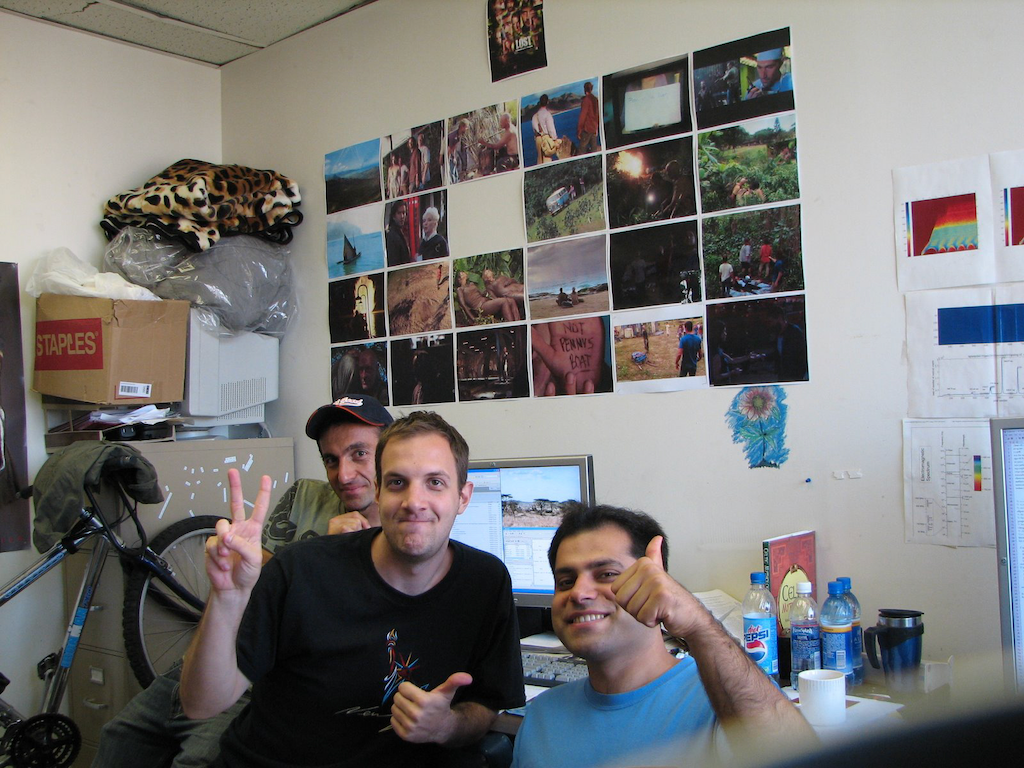Fun Science / On the Science of Lost
A shorter version of this essay appeared in Popular Mechanics here.
May 2010
Lost wasn’t initially branded as a pure sci-fi show, unlike ‘The X-files; or more recently ‘Fringe’. I was lucky to have started watching the show from day 1, and as the first 2-3 seasons progressed, in the back of my mind I was hoping that there would be a rational, scientific explanation about the weird happenings on the island. I myself was trying to come up with explanations on what the smoke monster is, what was the pocket of energy in the hatch, or how did the ‘Black Rock’ end up in the middle of the jungle.
There are cases where the story balances between science and science fiction, without violating any scientific laws per se. For example, in season 2, we find that Desmond’s failure to push the button in the hatch on time caused a spike of electromagnetic energy that brought down the plane of Oceanic 815. Even though the amount of energy required to affect a plane flying 30,000 feet away is extremely unrealistic (it would have much worse and obvious effects on the island first), the scientific principle that electromagnetic pulses can affect electronics, is correct. I am willing within the realm of a fictional piece of work not to demand strict scientific accuracy in such cases.
Another such example of ‘stretching’ the scientific realism in the show is how the Black Rock ended up in the middle of the jungle, as we found out in season 6. While it might seem unrealistic that an ocean wave can push a ship deep inland, it’s something we cannot forbid based on the laws of physics. It’s extremely improbable, yet not impossible.
However as the show progressed it became clear that a lot of elements could only be explained using science fiction. This started happening especially on the second half of the show (seasons 4-6) where I gave up on expecting everything to be explained scientifically. When the island suddenly dissapears, or when the characters time-travel, or when dead people show up, there isn’t much room for rational thinking. My attitude after that point was ‘OK, let’s accept that the island can somehow allow these things and see how the story progresses’. It is important that the writers did not introduce the heavy sci-fi elements until much later in the series, where the audience’s mind had adjusted to the reality presented to them, and accepted those elements smoothly.
I am happy to see that the producers have been consulting with real scientists for the more science-heavy parts of the show. As a result, most of the weird happenings on the island can be traced back to actual elements of physics. Faraday’s experiment with the rockets back in season 4 showed that time flows differently on and off the island. In reality it would probably never have manifested like that, but it is true in general relativity that time can indeed flow differently for different observers that have different speeds or are near areas with high energy density. Similarly, in theory there can be wormholes in spacetime that connect two distinct regions - and when you entered one side you would end up on the other side at a different place and time. It would never happen like Ben did it when he turned the frozen donkey wheel (it required immense amounts of negative energy density sustained over prolonged periods of time), but the underlying principle does exist.
Finally, even if I can accept the show having science fiction elements, I could not accept it being inconsistent. And by inconsistent I mean the various stories and elements presented to us contradicting eachother. If you ever watched the X-Files closely, you would know what I am talking about - by the time the final season aired they had put together so many elements that it was impossible to explain everything consistently under one roof. In Lost, on the other hand, the writers seem to have planned ahead at least the main ingredients of the storyline and as a result there have been no significant missteps along the way.
For such a complicated and heavily serialized story, where anything that is shown on screen at any given point in the series could affect the understanding of something else at another point, it is a truly remarkable feat.
